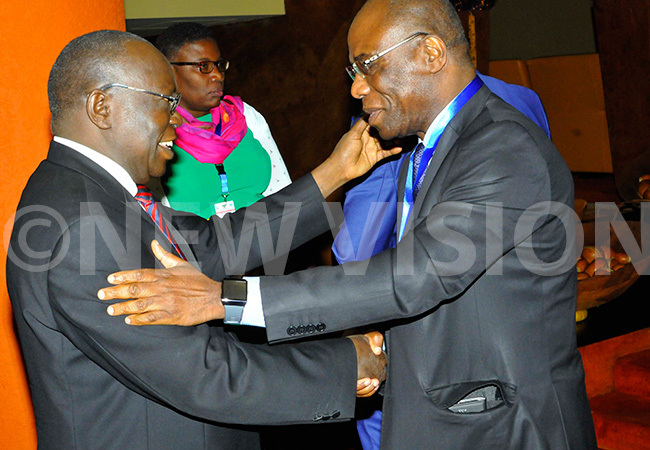More South Sudanese, Congolese refugees to return home - UN
“The peaceful transition of power in DRC gives hope that conditions will be in place for safe return for the Congolese refugees hosted in the neighbouring countries,” said Donata Garrasi,
KAMPALA - The United Nations (UN) has indicated that more Congolese and South Sudan refugees could start returning.
"The peaceful transition of power in Democratic Republic of the Congo (DRC)gives hope that conditions will be in place for safe return for the Congolese refugees hosted in the neighbouring countries," said Donata Garrasi, the Director Political Affairs Office of the UN special envoy for the Great Lakes Region.
Garrasi who was addressing the refugee management teams from the 12 Great Lakes Region countries at Speak Resort Munyonyo Hotel in Kampala on Tuesday, noted that by December 31, 2018, the Great Lakes Region countries were hosting over 815,000 Congolese refugees and asylum seekers. 159,000 were new arrivals and Uganda hosted 319,000 of the population.
Felix Tshisekedi was in January elected and sworn in as the President of DRC, succeeding Joseph Kabila. Tshisekedi pledged to promote DRC's development in peace and security and this according to Donata gave many Congolese refugees hope to return home.
"The peace processes in South Sudan and Central African Republic (CAR) will also see a number of refugees voluntarily willing to be repatriated in the next few months and years."
 Commissioner Refugees, Office of the Prime Minister Gerald Menhya confers with Special Advisor to the High Commissioner for United Nations High Commissioner for Refugees (UNHCR) Anauld Akodjenou after the opening of the High Level meeting of Refugees in the great lakes region at Speke Resort Munyonyo
Commissioner Refugees, Office of the Prime Minister Gerald Menhya confers with Special Advisor to the High Commissioner for United Nations High Commissioner for Refugees (UNHCR) Anauld Akodjenou after the opening of the High Level meeting of Refugees in the great lakes region at Speke Resort Munyonyo
The technocrats' meeting was intended at harmonizing policy commitments on the management of refugees. It will also form the agenda for the high-level meeting of the ministers in charge of refugees in the Great Lakes Region scheduled for Thursday which will be addressed by President Yoweri Museveni.
Governments in the region have already put in place treaties and other legal and policy frame works to deal with the refugees question in solidarity.
Donata noted that there are better chances of achieving political will and security stability which were missing in some Great Lakes countries.
Although the South Sudanese former vice president and opposition leader Riek Machar is yet to return to Juba, in September last year President Salva Kiir and Machar signed the final peace deal in South Sudan's civil war, which is expected to bringing to an end the nearly five years of fighting.
The new deal would return Machar to power, where he would serve as the "first" of the five vice presidents, and maintain Kiir as president.
About 2,280,378 South Sudanese refugees are reportedly living in the neighboring countries after being displaced by the conflicts.
In February this year, a peace deal between the government of the Central African Republic (CAR) and 14 rebel groups struck a deal after talks in Sudan.
The deal was announced by the UN mission in CAR, known as Minusca, and the African Union (AU), which both sponsored the talks in Khartoum.
The Acting Commissioner for Refugees in the office of the Prime Minister, Gerald Simon Menhya, said a lot of work was on going and Uganda is leading durable efforts to provide the refugees and displaced persons an opportunity to either go back or get locally integrated into the host communities.
"These are option we want to present to refugees - to take a decision to either go back in their countries of origin or locally be integrated when we know that the countries of origin have created peace and security," he said.
According to the UN, international efforts are continuing to ensure the stabilization of the regional countries that remain unstable.